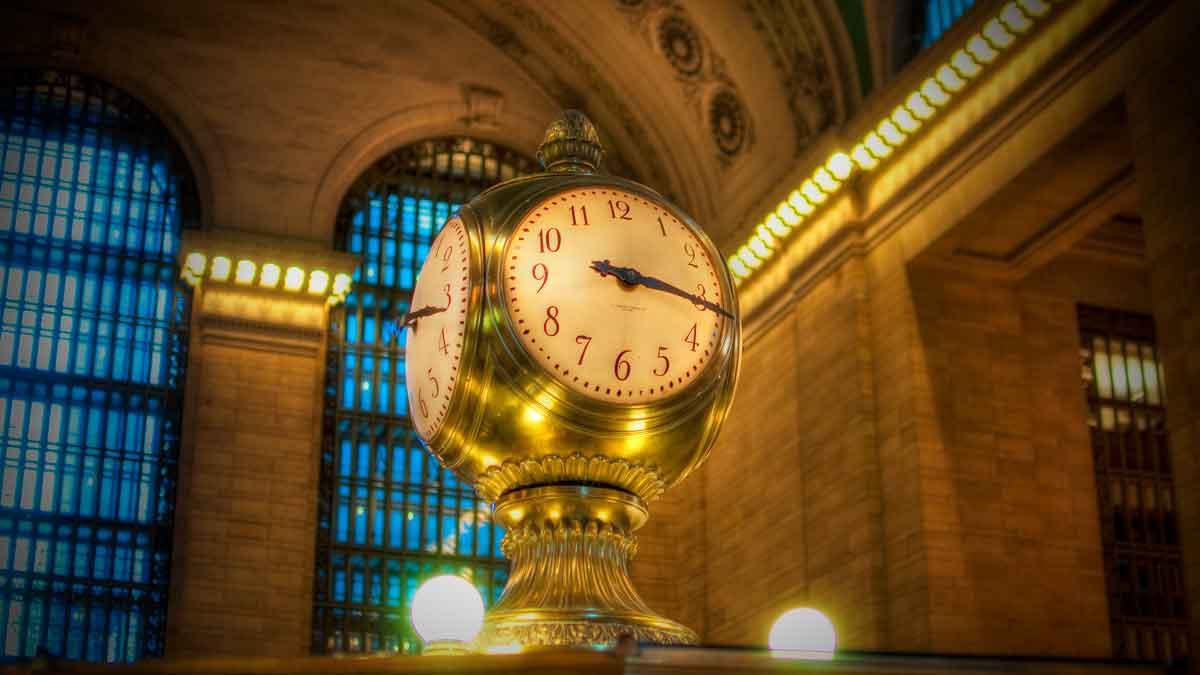The clock in Grand Central Station in New York.
OK, we all know how long a day is, right? One spin of the Earth, a full rotation.
Long ago, someone somewhere chopped that full day up into bits they called hours, decided there were 24 of them in one day, and at some point the whole rest of the world decided to go along with that way of marking time. 24 hours in a day. 1,440 minutes. 86,400 seconds.
Except today. Today is 86,401 seconds — one extra second.
I tried to explain this weirdness to my daughter, Eleanor. I wanted to talk to her about the leap second today because she’s interested in stuff like this, but also for another reason.
Today Eleanor turns 6. And just this year, she has one extra second to enjoy her birthday.
But why is there an extra second?
When we talked about this last night, I didn’t exactly know myself. We were about to sit down and read what NASA had to say about it.
“Earth’s rotation is gradually slowing down a bit," NASA's press release quoted Daniel MacMillan of the Goddard Space Flight Center as saying. "So leap seconds are a way to account for that.”
"What's that mean, 'gradually slowing down'?" Eleanor wants to know.
Something to do with the gravity of the sun and the moon tugging at the Earth, I told her.
Here’s the basic deal, in terms that maybe a newly-minted 6-year-old could understand, but hopefully not too basic for the rest of us.
Turns out, Earth days are getting longer. Eons ago, a day was 23 hours long. Way in the future, it will be 25 hours long, and then even longer. The gravitational pull of the sun and the moon are basically working like very slow brakes on Earth’s spin. Right now, in fact, an average day is 24 hours plus 2 milliseconds.
So that’s where the idea of the leap second comes in. The people who keep track of time came up with it to keep human time consistent with nature, just like people came up with the idea of adding a leap day to the calendar roughly every four years. They figured out long ago that the amount of time it takes the Earth to orbit the sun is slightly longer than the 365 days in a human year. If we didn’t add that extra day once in a while, our months slowly would get all out of whack with the seasons.
Same thing with days and that tiny little extra couple of miliseconds.
But here’s the thing. The Earth isn’t slowing down by a regular, predictable amount. Things that happen right here on Earth can also affect the length of the day.
Everything from atmospheric variations due to El Niño to volcanic eruptions to changes in the Earth’s inner core can all affect the length of a day. So we don’t add that leap second every year. Sometimes we have it, sometimes we don’t, sometimes we have more than one.
NASA says that today’s leap second will be only the fourth to be added since the year 2000.
OK, got it?
After half an hour or so of a meandering conversation with Eleanor, I wasn’t sure that she had it.
When I asked her, she had to think about it for another minute.
"Because the Earth doesn’t spin exactly at one day?"
Nailed it.
Now believe it or not, there’s actually a controversy over this leap second thing. There are people who say we should dump the idea altogether. I didn’t get into that with Eleanor. I won’t get into it here either. In any case, there’s no way anyone’s going to take away Eleanor’s extra second for her birthday, because she’s already got plans for it — to have an "extra special dessert."
Well OK, maybe. I mean, it is her birthday and all.
And as it turns out, she might get to do it at exactly the right second. Because the real extra second, the one the global time keepers are adding today, comes at midnight UTC, what used to be known as GMT. That's 8 pm here in Boston. Right when she might be finishing up her birthday dinner.
>>
Explaining things to kids can be a fun challenge. What's the weirdest thing YOUR kid has ever asked you about?
